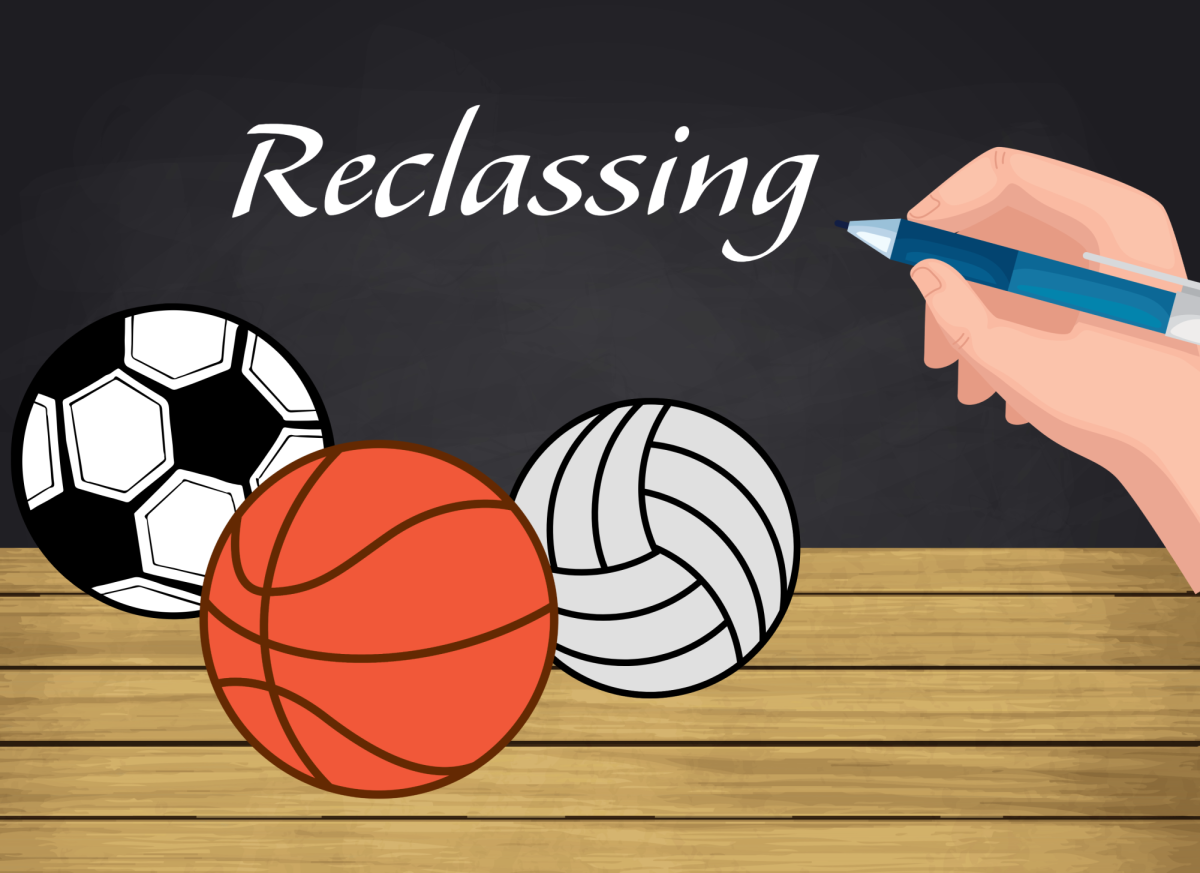The current graduation requirements, which have been deemed inadequate, have been reviewed by a committee seeking to mend former problems as well as improve the school’s standards for graduation. The committee’s proposal for elective requirements, however, seems as though it will only exacerbate past problems and further restrict students’ course selection.
The committee’s recommendation is for students to take a minimum of three “core electives” throughout their four years of high school, and the electives have to be from at least two different categories, such as art, music, or business. The philosophy behind this proposal is that students should get a varied education in high school and expose themselves to different subject areas. Vice President Stephen Imbusch, a proponent of this proposal, said “my opinion is that students should be required to ‘dabble’ in areas that they may not necessarily take if left to their own devices.” While this philosophy certainly has merit and the requirement seems attainable, the truth is that many students will struggle to fill it and will only be able to do so by dropping their preferred classes.
Considering that students had trouble with the elective requirement last year, which only called for two years of unified arts classes (the old department name for “core electives”) and allowed the classes to be in the same subject area, it seems obvious that students will have difficulty fulfilling this larger and more specific requirement. Several students had to pay to take college summer courses to fulfill last year’s elective requirement, and many others had to drop their desired classes. Though the committee feels that last year’s problems have been solved because Journalism, TV Production, and Film will now count towards elective credit, this simple change will not alleviate all of the problems students encountered last year. First of all, many of the students who had issues last year weren’t enrolled in the aforementioned courses; they had trouble fulfilling the requirement because they were taking two languages or had taken non-core electives such as psychology, sociology, or creative writing. Students with similar schedules will face even more problems now with the stricter requirements, but there is no reason they should have to face these problems at all. Students who take two languages will likely struggle with the requirement, but who’s to say that exposing oneself to Mandarin Chinese in addition to Spanish is less valuable than exposing oneself to Accounting? If part of the high school’s objective is to prepare students for the real world, then students should not be punished for taking two languages.
Furthermore, why shouldn’t a student be able to take four years of Latin as well as four years of Art if those are the subjects they’re passionate about? Such a student would have fulfilled the former elective requirements, but if the newly proposed requirement goes into effect, this student would not graduate. One might wonder why the school even offers electives like AP Art, which requires students to take three years of art as a prerequisite, if the idea is for students to be exposed to different elective areas. Students who intend to take art in college benefit greatly from taking AP Art, which helps them prepare an art portfolio to send with their applications; however, the new requirement discourages prolonged study in one subject area.
Advocates of the newly proposed requirement would argue that it is indeed possible for students to take two languages, four years of Art, and still have room in their schedule to take an alternate elective to fulfill the new requirement; and they would be right. However, this argument entails dropping subjects such as math or history from one’s schedule, which are only required for three years. When it comes to this point, electives such as Robotics and Marketing are being placed at a higher importance than math. Most colleges, however, disagree with this prioritization and would look much less favorably upon a student who has dropped math in favor of Robotics.
Even if the philosophy behind the new electives requirement is sound, it is still too ideal to be effective. On paper, it could work flawlessly and even give students an adequate amount of selection; however, this is based on the false assumption that the courses students request are the courses they receive. With so many classes offered only one period, such as Band, Creative Writing, and most AP classes, students’ schedules are already severely restricted. With this limited scheduling, students often have difficulty getting into their requested classes, or even their alternative choice. It would be completely fair and logical to institute the proposed three-year elective requirement and claim that students will still not be overly limited in their course selection if students could be promised that they would not have difficulty being placed in the classes they requested. Students, faculty, and guidance alike, however, know that this ideal scheduling is far from the truth.
While the committee who proposed this plan made a great effort to represent all interested parties, even including the two students who had to take college classes to fulfill the present elective requirement as representatives on the committee, it’s very telling that none of the three students on the committee voted in favor of the three-year electives proposal. This new plan limits student choice in course selection and while it preaches variety, it greatly restricts the type of variation it will allow by not allocating ample room for a second language or a four-year study of band or art.
While the philosophy behind the new requirement is understandable and does seem feasible on paper, it’s foolish to ignore the teachings of the past. Far too many students had difficulty fulfilling last year’s less stringent two-year elective requirement to think that simply including Journalism, Film, and TV as electives will make the more demanding three-year elective requirement attainable, even without taking into account the further condition that the electives must be from at least two different categories.
Electives should be a reprieve for students, a time in the day where they can study what they are truly interested in. For some students this means Robotics, for others it’s Latin; these latter students should not be punished for their interests. The school needs to put less restrictions on electives and give students more choice; however, the current proposal for elective requirements will do just the opposite.








The Old Way was FINE • Jan 31, 2010 at 11:50 am
I think that the old system was fine… yes its a pain that students have to give up certain classes for unified arts, but you have to give up at least half a semester to health anyways at some point in your high school career, which likely results in you taking gym as well… But that sounds terrifying, doesn’t it? Learning about how to take care of yourself and doing physical activity during school? OH MY. I’d much rather take another language and endure the stress of more homework and tests… or not.
So the system is flawed to begin with as gym and health will interrupt your sched no matter what for one year, but I’ll agree that this new elective requirement just seems worse. As for the complainers who whine about how they didn’t know what the graduation requirements are, maybe they should pick up the handbook (doesn’t everyone have to sign it frosh year saying they read it?), which clearly shows what you have to do to graduate… (cough, maybe some of the guidance department should review this too, cough)…
So while some of you will read this and be enraged because you will never be able to make it to Latin 5 or Robotics 7 and be forced to take some sort of artistic class, you should plan ahead when you enroll at WHS… there are rules to graduating that you just have to put up with…
Billy Heanue • Jan 29, 2010 at 10:48 pm
This is awful. This means 2 of my 7 blocks next year must be occupied by these “core electives”. Should the school pay for the college courses i will need to take over the summer to satisfy these foolishly idealist requisites? Yes, because the student body largely had no say in this matter.
Furthermore, these new requirements largely contradict the high school’s Mission Statement. These “core electives” will have to occupy 2 of the the 7 classes I will take senior year. By obstructing me from taking the classes WHICH I AM INTERESTED IN and WANT TO TAKE, I am forced to devote time to those which I am not. This new rule is not “fostering learning through a collaborative process which engages STUDENTS, educators, and the community”, it is forcing it. It is NOT providing the “opportunities for students to acquire knowledge and to develop skills in order to achieve academic and PERSONAL goals”.
Sadly, the personal goals I wish to achieve during my stay at WHS do not include Accounting, they lie in other electives not deemed “core”. These include Micro+Macroeconomics, Anatomy+Physiology, US Government, and International Relations (among numerous others).
So it seems that a difference in opinion will bar me from graduation, lest I invest my own money into courses taught elsewhere. It is awful to think that in such a liberal society that is Massachusetts, the freedom of choosing one’s own classes for the subsequent year are constrained by those who wish to CONTROL what the student’s mind should be focusing upon.